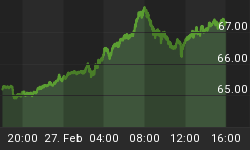Shockwaves
On April 25, Austria's far-right, anti-immigration platform FPÖ Freedom party picked up over 35% of the vote in the first round of national elections.
The center-right ÖVP and center-left SPÖ parties were shutout for the first time since WWII. A second round of voting is on May 22 between the Green party and FPÖ.
The vote is for president, a largely ceremonial role, but the fallout has already begun.
The effective leader of Austria is not the president but the chancellor, and today the chancellor suddenly resigned, sending shockwaves throughout the EU.
New elections are likely.
Chancellor Werner Faymann Resigns

The Financial Times report Austrian Chancellor Werner Faymann Resigns After Far-Right Surge.
Austria's chancellor has resigned after he lost the support of his own party in the wake of the presidential elections last month in which his social democratic SPÖ was trounced by the far-right Freedom party.
Werner Faymann had come under pressure from his centre-left party to work more closely with the anti-immigration FPÖ after its unexpectedly strong showing in the first round of the presidential election.
Mr Faymann's resignation as chancellor and party leader will send shockwaves through Europe as politicians elsewhere assess the surge in support for anti-immigration parties
Norbert Hofer for the FPÖ won more than 35 per cent of the vote, far more than any other candidate. He had campaigned on a nationalist platform of strict limits on immigration, tough rules for asylum seekers and the break-up of the two-party system that has dominated Austrian politics since the end of the second world war.
The growing support for the far right has placed the SPÖ and ÖVP under greater pressure to work with the FPÖ if they want to remain in power. The social democratic party's official position, set in 2014, rejects working with the FPÖ in coalition. Mr Faymann continued to defend that position even after Hans Niessl, an SPÖ provincial governor, broke ranks last year.
Mr Faymann was booed at an SPO May Day rally after the thrashing in the presidential vote. His popularity had plunged after initially backing the open-door policy of Angela Merkel, the German chancellor, on refugees.
Faymann Quits Calls for "New Start"
The Wall Street Journal reports Austrian Chancellor Werner Faymann Quits on Migrant Issues.
Austrian Chancellor Werner Faymann resigned on Monday, becoming one of the most prominent casualties of the political upheaval sweeping Europe amid the migration crisis.
Mr. Faymann, 56, a center-left politician who has been chancellor since 2008, said he was giving up his post as head of the Alpine country's government with immediate effect. It was still to be determined, he said, who his long-term successor would be.
"This country needs a chancellor whose party is completely behind him," Mr. Faymann told reporters in Vienna, stating that he was leaving because of insufficient backing within his Social Democratic Party. "This government needs a new start."
Mr. Faymann didn't call for new elections before stepping down, but Austrian media speculated that the government might do so in the coming days. The next regular parliamentary elections are scheduled to take place in 2018.
Mr. Faymann's resignation is the latest sign of political turmoil across Europe, driven by euro-skeptic, anti-immigrant, populist parties that are gaining traction as mainstream governments struggle to master growing migrant numbers and tackle economic doldrums.
In Denmark, the right-wing populist Danish People's Party achieved stronger-than-expected election results last year, pushing the centrist government to take tougher measures to keep migrants out. In Germany, the upstart Alternative for Germany party made landmark gains in state elections in March and now polls at 15%, cementing its status as the most successful right-wing party in Germany since World War II.
Austria's next political test comes on May 22, in the runoff presidential vote that will pit the Freedom Party's Mr. Hofer against independent candidate Alexander Van der Bellen, who favors openness toward accepting refugees.
Presidential Powers
Wikipedia explains ...
Though technically wielding powers comparable to that of the chief executives of semi-presidential systems, in practice, Austria operates under a parliamentary system of government, and the federal president is more a figurehead than an actual interventive politician.
In constitutional theory, the president has free rein in appointing the head of the federal cabinet and, by extension, free rein in appointing federal cabinet ministers, Supreme Court justices, military officers, and most major bureaucrats. The president even has the authority to dissolve the National Council (the more powerful lower house of the Austrian parliament) more or less at will. However, as a practical matter, all the president ever does is fulfill purely ceremonial duties: much like British monarchs, holders of the office of President of Austria are bound by constitutional convention to aim at being nonpartisan custodians of political morality, to serve as symbols of national identity, and not to intervene in actual politics.
The president appoints and swears in the Federal Chancellor and, upon the advice of the chancellor, the federal ministers. In theory, the president can name as chancellor, and by extension a federal minister, anyone whom he sees fit. However the National Council can remove an individual minister or the Cabinet as a whole from office through a motion of no confidence. Also, a cabinet without enough support in the National Council could easily end up paralyzed. In practice, therefore, the cabinet's composition reflects National Council election rather than presidential election results, and the chancellor is almost always the leader of the largest party in the governing coalition.
If FPÖ Freedom party candidate Norbert Hofer wins the runoff as I expect, then if new elections are called (Hofer himself can call for elections), look for an anti-immigration leader to head up Austria, not in 2018, but now.
This belongs on Merkel's head. She should also resign.















